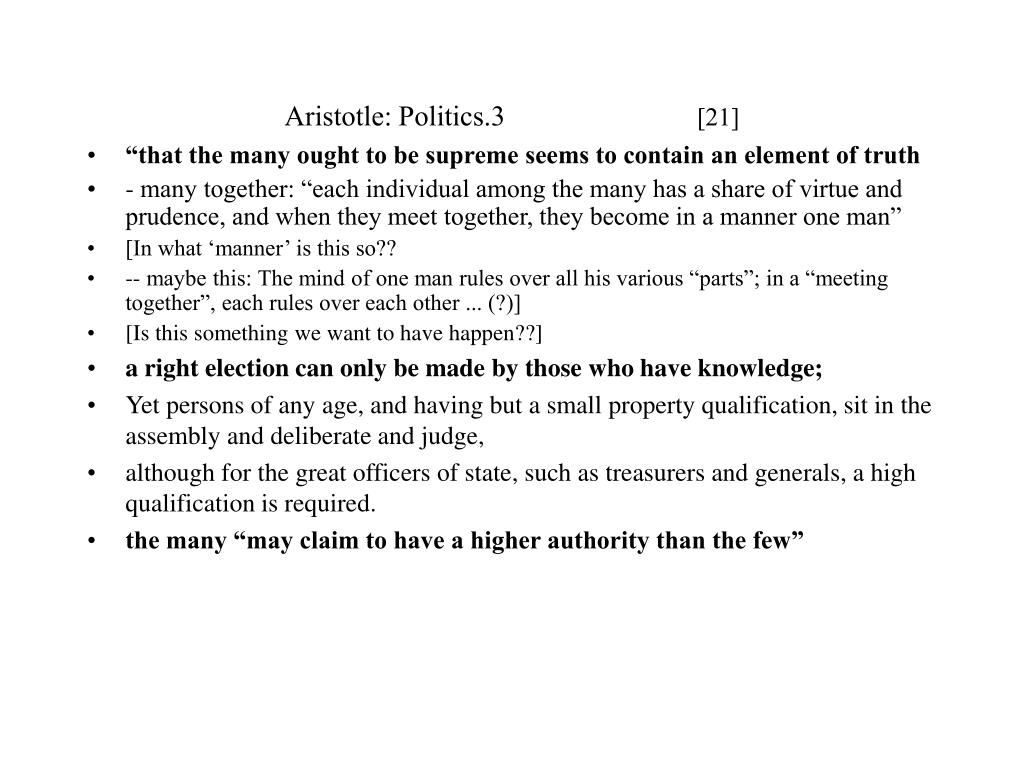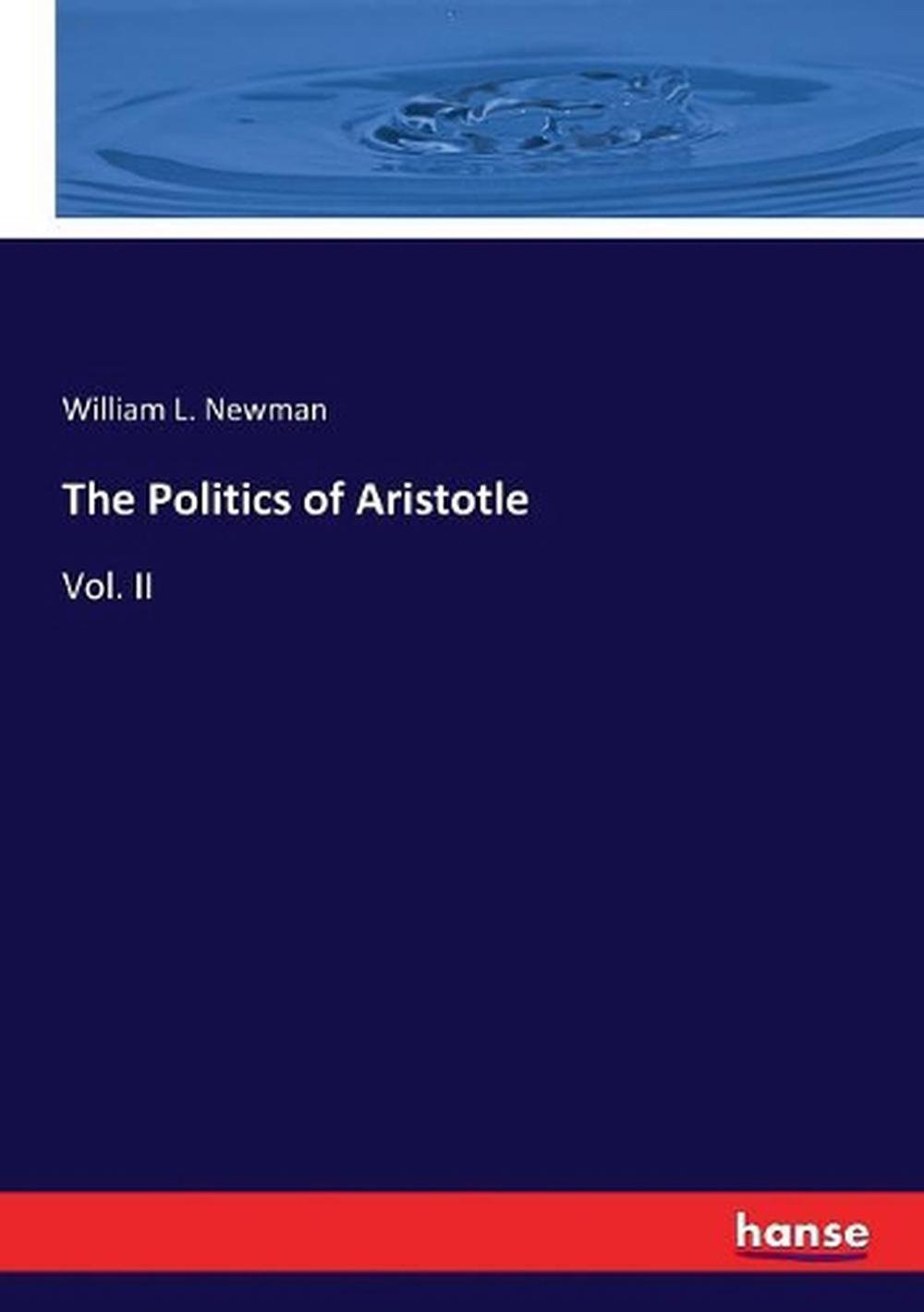

That, in the end, is the crucial fact about me (and about you), and it is a fact which, in the Politica, Aristotle ignores or suppresses” (1990: 63). Jonathan Barnes, for instance, complains, “I am an independent individual.

It is precisely this core doctrine that invites serious criticisms from modern scholars. In this sense, it is not exaggerating to say that the Priority Argument is the core doctrine of Aristotle’s political philosophy. The primacy of the city is therefore of paramount importance for Aristotle’s ethics and politics as a unified whole. These parallelisms between the beginnings of Nicomachean Ethics and Politics, along with the finishing lines of the former that transit the whole investigation to the latter, make it clear that these two works are two consecutive parts of the same course of lectures on political philosophy that constitute “the philosophy of human affairs (ἡ περὶ τὰ ἀνθρώπεια φιλοσοφία)” ( NE 1181b15). In NE I 2 he points out that the end of politics embraces (περιέχοι) all the other human ends ( NE 1094b6–7), while in Politics I 1 he remarks that the city embraces (περιέχουσα) all the other human communities ( Pol. In NE I 2 Aristotle remarks that the highest human good is the concern of politics, which is most authoritative (κυριωτάτης) ( NE 1094a26–28), while in Politics I 1 he claims that the city is the most authoritative (κυριωτάτη) of all human communities ( Pol. The importance of the Priority Argument can be seen most clearly from the beginnings of Nicomachean Ethics and Politics, where Aristotle establishes the primacy of the political for the investigation of the highest human good. Evidently, this argument is meant to prove the primacy of the city for the realization of the human good. In what follows I shall call this argument the Priority Argument.

In Politics I 2, Aristotle argues that the city is naturally prior to the household and the individual in a similar way as the whole body is prior to its organic parts ( Pol. Key words: political priority, political hylomorphism, phusis, nomos This interpretation should enable us to see that, just as his hylomorphism is a middle path between Presocratic materialism and Platonic dualism, Aristotle’s political hylomorphism is a middle path between two radical versions of political naturalism by Antiphon and Plato.

I wish to demonstrate in this article that Aristotle’s argument for the priority of the city in Politics I 2 is supported by his conception of the ontological priority of form (and actuality) over matter (and potentiality).


 0 kommentar(er)
0 kommentar(er)
